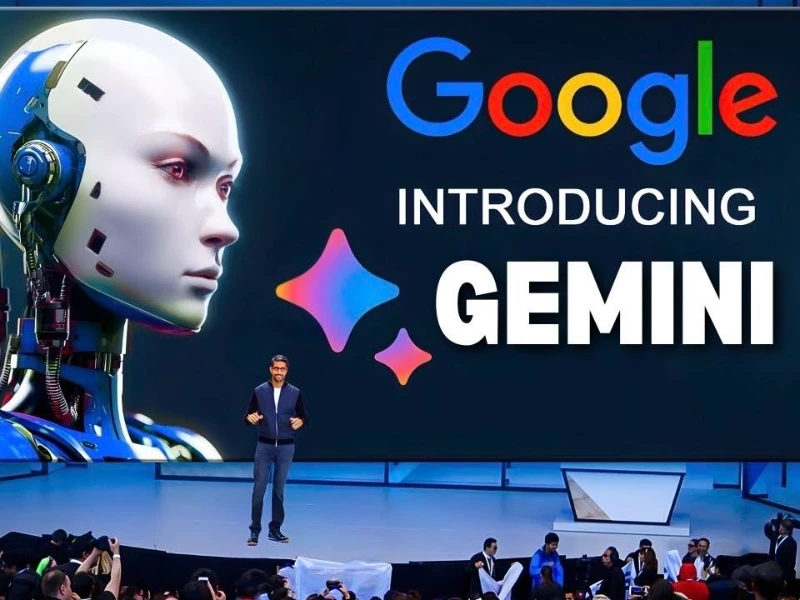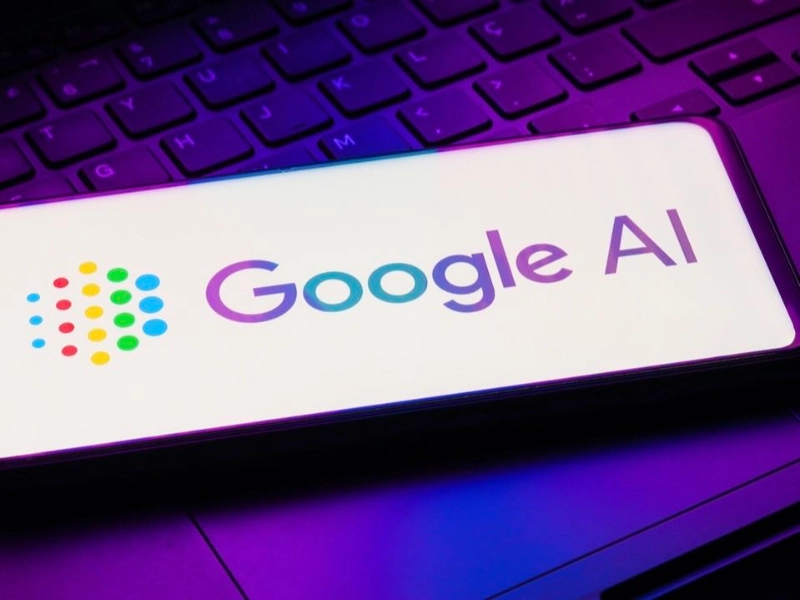- Google already uses AI techniques for many search functions, including understanding your search query and assessing the most relevant results.
- New abilities like large language models and generative AI, though, dramatically expand what’s possible with the ability to package information into text written on the fly, which is what SGE tries to accomplish.
- “These new generative AI capabilities make search smarter and search simpler,” said Cathy Edwards, a vice president leading Google search, at Google I/O. “It’s a new organisation of web results, giving you a helping jumping-off point.”
With a simple query, users can access a wealth of information spanning virtually every topic imaginable. But what fuels Google’s ability to provide accurate and relevant answers to our questions? The answer lies in the sophisticated integration of artificial intelligence (AI) within its search algorithms.
The integration of AI within Google’s search algorithms has transformed the way we access and interact with information. By leveraging natural language understanding, knowledge graphs, and machine learning, Google delivers tailored and contextually relevant answers to our questions, enriching our online search experience.
read: Mastercard AI doubles fraud detection speed
Evolution of eearch: From keywords to intent
In its nascent stages, Google relied heavily on keyword matching to retrieve relevant web pages for a given query. However, as the volume and complexity of online content burgeoned, traditional keyword-based approaches proved inadequate. Enter AI-powered search algorithms, which revolutionised the way Google processes and delivers search results.
Natural Language Understanding: Deciphering intent
At the heart of Google’s AI-driven search lies natural language understanding (NLU) technology. This enables Google to decipher the intent behind user queries, allowing it to provide more nuanced and contextually relevant responses. Whether it’s a straightforward question or a complex inquiry, Google’s AI algorithms analyse the semantics and syntax of the query to discern the user’s underlying intent.
Knowledge graphs: structured data for richer answers
To augment its understanding of the world’s information, Google harnesses the power of knowledge graphs—vast repositories of structured data that encapsulate interconnected facts and entities. By leveraging knowledge graphs, Google can provide richer and more comprehensive answers to user queries, drawing from a diverse array of sources to furnish relevant information.
Machine Learning: Continuous improvement
Google’s AI-driven search algorithms are underpinned by machine learning—a subset of AI that enables systems to learn from data and improve over time. Through continuous analysis of user interactions and feedback, Google’s algorithms refine their understanding of language patterns, user preferences, and topical relevance, enhancing the accuracy and efficacy of search results.
How Google’s generative AI works?
Here’s how Google’s AI-enhanced search works in action: Imagine you’re searching for “good bike for a 5-mile commute with hills.” Google combines traditional search results with a highlighted box containing AI-generated suggestions. After processing the query in Google’s data centers, the results are delivered: a curated list of factors to consider, such as e-bikes and suspension options, along with links to related websites, specific bike models, and suggested follow-up questions.
In addition to organic search results, Google may display sponsored ads labeled as such, featuring shopping links. This aligns with Google’s goal of leveraging AI-enhanced search to generate revenue.
“We noticed that users were presenting us with complex queries that often required numerous follow-up searches, sometimes spanning several days,” explained Edwards. Google aimed to streamline this process, minimising the effort required to find relevant information.
AI-driven search results have the potential to reduce the need for users to explore beyond the initial search page, a continuation of Google’s trend of providing direct answers, such as mathematical calculations, weather forecasts, and Wikipedia excerpts, directly on the search results page. However, Google anticipates that users will still desire to click through to original sources, particularly for intricate queries.
Google is introducing this generative search technology through its Search Labs initiative to solicit feedback from web publishers and advertisers. “We want to gather input from stakeholders across the web to ensure that our developments are well-considered,” stated Edwards.
This approach underscores Google’s commitment to refining its AI-driven search capabilities in a collaborative and user-focused manner.
Also read: Google CEO Sundar Pichai on AI search and the web’s future
Want an AI chatbot? Look elsewhere
Google isn’t going as far as Bing’s renowned chatbot, which utilises OpenAI’s GPT-4 large language model. While Google does provide a chat interface through its Bard tool, it’s maintaining a clear distinction between this feature and its search results. For now, users won’t find themselves engaging in conversations with bots, as Google has opted for a lighter-weight language model that prioritises factual accuracy over creative output.
“We focused more on ensuring factual accuracy rather than prioritising fluidity because we believe that’s what users anticipate from Google search,” explained Edwards.

Another Google search change: Perspectives
Google frequently provides “chips” such as shopping, maps, videos, or news when you conduct a search, allowing you to refine your results with a click or tap. Now, a new chip is being introduced: perspectives.
This addition aims to highlight personal experiences related to the search query, such as forum posts or short videos on social media.
“We recognise that users value Google for its authoritative information,” explained Edwards. “At the same time, we understand that they also seek human voices and authentic perspectives. The core search results page will feature a mix of both.”
The Future of search: Advancing AI
As AI technology continues to evolve, so too does Google’s approach to question answering. From voice search and natural language processing to personalised recommendations and predictive search, the future of Google’s AI-driven search promises even greater convenience, efficiency, and relevance for users worldwide.

